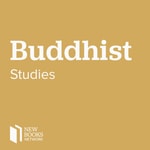New Books in Science, Technology, and Society – Détails, épisodes et analyse
Détails du podcast
Informations techniques et générales issues du flux RSS du podcast.

New Books in Science, Technology, and Society
New Books Network
Fréquence : 1 épisode/2j. Total Éps: 2643

Classements récents
Dernières positions dans les classements Apple Podcasts et Spotify.
Apple Podcasts
🇨🇦 Canada - socialSciences
29/07/2025#51🇨🇦 Canada - socialSciences
28/07/2025#39🇬🇧 Grande Bretagne - socialSciences
28/07/2025#82🇬🇧 Grande Bretagne - socialSciences
27/07/2025#67🇺🇸 États-Unis - socialSciences
25/07/2025#82🇬🇧 Grande Bretagne - socialSciences
17/07/2025#84🇬🇧 Grande Bretagne - socialSciences
16/07/2025#66🇺🇸 États-Unis - socialSciences
16/07/2025#76🇺🇸 États-Unis - socialSciences
15/07/2025#89🇬🇧 Grande Bretagne - socialSciences
14/07/2025#88
Spotify
Aucun classement récent disponible
Liens partagés entre épisodes et podcasts
Liens présents dans les descriptions d'épisodes et autres podcasts les utilisant également.
See all- http://www.nias.ku.dk/nordic-asia-podcast
276 partages
- https://www.sensorylogic.com
245 partages
- https://twitter.com/sraab18
19 partages
Qualité et score du flux RSS
Évaluation technique de la qualité et de la structure du flux RSS.
See allScore global : 53%
Historique des publications
Répartition mensuelle des publications d'épisodes au fil des années.
Henry H. Work, "Wood, Whiskey and Wine: A History of Barrels"(Reaktion Books, 2024)
Épisode 160
dimanche 1 septembre 2024 • Durée 46:58
Mel Stanfill, "Fandom Is Ugly: Networked Harassment in Participatory Culture" (NYU Press, 2024)
Épisode 194
samedi 31 août 2024 • Durée 48:29
Phil Haun, "Tactical Air Power and the Vietnam War: Explaining Effectiveness in Modern Air Warfare" (Cambridge UP, 2023)
Épisode 1471
dimanche 25 août 2024 • Durée 43:07
Catherine D'Ignazio, "Counting Feminicide: Data Feminism in Action" (MIT Press, 2024)
Épisode 24
vendredi 17 mai 2024 • Durée 53:42
Robert A Jacobs, "Nuclear Bodies: The Global Hibakusha" (Yale UP, 2022)
Épisode 118
mercredi 13 avril 2022 • Durée 01:10:37
Dashun Wang and Albert-László Barabási, "The Science of Science" (Cambridge UP, 2021)
Épisode 57
mercredi 13 avril 2022 • Durée 01:01:05
James C. Ungureanu, "Science, Religion, and the Protestant Tradition: Retracing the Origins of Conflict" (U Pittsburgh Press, 2019)
Épisode 276
mardi 12 avril 2022 • Durée 01:13:57
Marcus Kaiser, "Changing Connectomes: Evolution, Development, and Dynamics in Network Neuroscience" (MIT Press, 2020)
Épisode 16
vendredi 8 avril 2022 • Durée 45:16
Pandemic Perspectives 5: Necessarily Global--How the Pandemic Forces Us To Think Bigger
Épisode 113
mercredi 6 avril 2022 • Durée 45:22
Jacob Mchangama, "Free Speech: A History from Socrates to Social Media" (Basic Books, 2022)
Épisode 155
mercredi 6 avril 2022 • Durée 36:47









